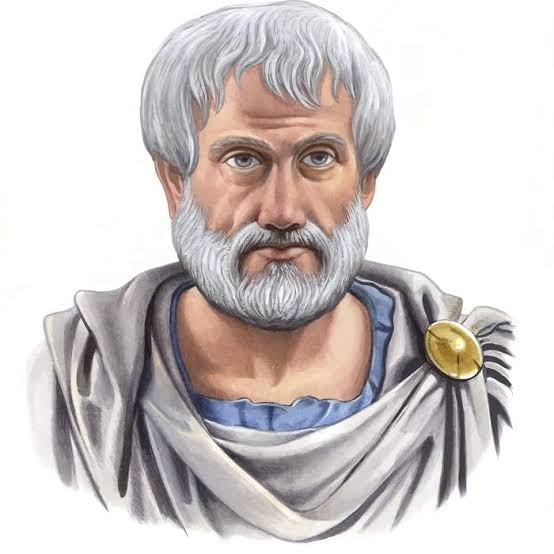Aristotle (384-322 BCE) is widely considered one of the most influential philosophers in history. He was a student of Plato and a teacher to Alexander the Great, but his contributions to philosophy, science, politics, and ethics stand on their own merit. Here are some unique facts about Aristotle that you may not have known:
-
Aristotle was born in Stagira, a small town on the northern coast of Greece. His father, Nicomachus, was a physician, and his mother, Phaestis, was from a wealthy family. Aristotle spent his early years in Stagira and later studied in Athens, where he became a student of Plato.
-
Aristotle was a polymath, which means he was knowledgeable in many fields. He wrote about philosophy, biology, physics, logic, ethics, politics, and more. He is sometimes referred to as the “last of the classical philosophers” because his work marked the end of a period of ancient Greek philosophy.
-
Aristotle’s work in biology was groundbreaking for its time. He studied animals and classified them according to their physical characteristics, behavior, and habitat. He also wrote extensively about the anatomy of animals, including humans. His work in biology laid the foundation for modern scientific classification.
-
Aristotle believed in empirical observation, which means that he believed that knowledge comes from experience and observation of the world. He rejected the idea of innate knowledge or intuition. This approach to learning influenced the scientific method used today.
-
Aristotle was also a teacher to Alexander the Great, who was his student for several years. Aristotle taught Alexander about philosophy, politics, and ethics, among other subjects. Alexander went on to become one of the most successful military leaders in history.
-
Aristotle’s most famous work is probably the Nicomachean Ethics, in which he discusses the nature of happiness and how to achieve it. He believed that happiness is the ultimate goal of human life and that it can be achieved through virtuous behavior.
-
Aristotle’s philosophy was based on the idea that everything in the world has a purpose or function. He called this concept telos. He believed that everything in nature has a telos, or purpose, and that the purpose of human life is to achieve happiness by fulfilling our telos as rational beings.
-
Aristotle was a student of Plato, but he disagreed with many of Plato’s ideas. For example, Aristotle rejected Plato’s theory of Forms, which held that there is a perfect, eternal, and unchanging realm of abstract concepts that exists independently of the physical world. Aristotle believed that physical objects and concepts are inseparable and that they exist together in the physical world.
-
Aristotle’s ideas about politics were also influential. He believed that the best form of government is one that balances the interests of the individual and the community. He believed that a just society is one in which people have equal opportunities to achieve happiness.
-
Aristotle’s ideas were not always popular in his own time. He was criticized by some of his contemporaries for his emphasis on observation and empirical evidence, which they saw as a rejection of traditional Greek philosophy. However, his ideas eventually became widely accepted and had a profound influence on Western philosophy and science.
-
Aristotle was a prolific writer, and many of his works have been lost over time. However, some of his most important works, such as the Nicomachean Ethics, the Politics, and the Organon (which includes his works on logic), have survived and are still studied today.
-
Aristotle was also a mentor to several other notable figures in history, including Theophrastus, who succeeded him as head of the Lyceum, and Ptolemy I Soter, one of Alexander the Great’s generals who became the first ruler of the Greece.
-
Aristotle founded his own school, the Lyceum, in Athens. It was a rival to Plato’s Academy, which was founded around the same time. The Lyceum was known for its emphasis on empirical observation and scientific study, and it attracted many students and scholars.
-
Aristotle had a son named Nicomachus, who was named after Aristotle’s father. Nicomachus became a philosopher in his own right and wrote a book on arithmetic that was widely read in the Middle Ages.
-
Aristotle’s influence on Western philosophy and science was immense. His ideas were studied and debated by scholars throughout the Middle Ages and Renaissance, and they continue to be studied and debated today. Many of his concepts, such as causality, teleology, and the four causes, are still used in modern science and philosophy.
-
Aristotle’s work on logic was particularly influential. He developed a system of deductive reasoning that is still used in mathematics and philosophy today. His syllogism, which is a type of logical argument, is still taught in many philosophy courses.
-
Aristotle was also interested in astronomy and wrote a book called On the Heavens. In it, he proposed a geocentric model of the universe, which held that the Earth was at the center of the universe and that the stars and planets revolved around it. This model was widely accepted until the 16th century, when Copernicus proposed a heliocentric model.
-
Aristotle believed that the soul was the animating principle of living things. He believed that humans had a rational soul, which distinguished them from other animals. He also believed that the soul was immortal and that it survived after death.
-
Aristotle was not only interested in philosophy and science, but also in the arts. He wrote about poetry and drama and believed that the purpose of tragedy was to arouse emotions in the audience and lead to a cathartic release. His ideas about drama and catharsis continue to influence the study of literature and theater today.
-
Aristotle’s ideas about education were also influential. He believed that education should be practical and aimed at developing the virtues necessary for a good life. He also believed that education should be tailored to the individual needs and abilities of each student.






